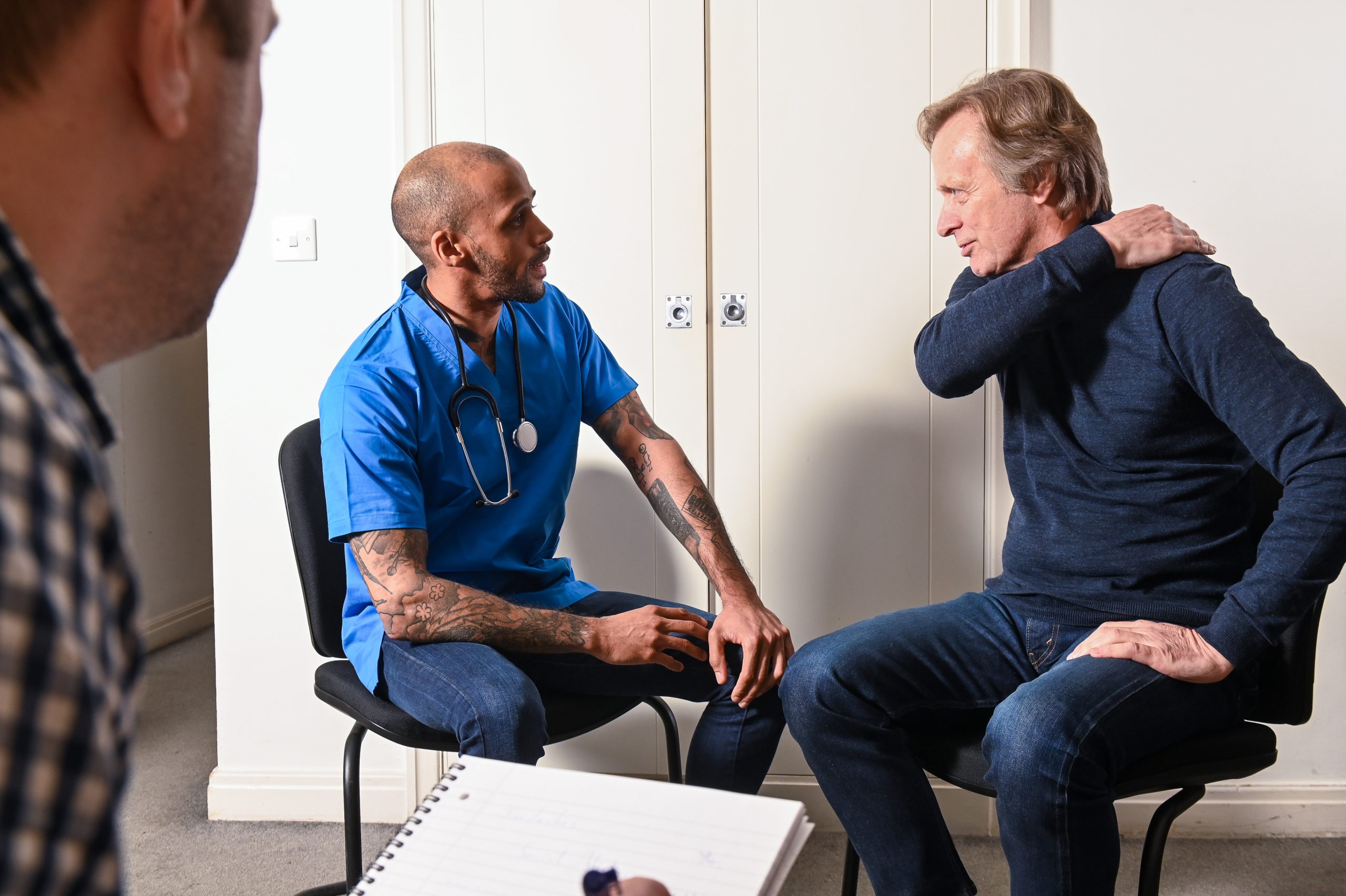
“Would you like feedback in role, or would you prefer it if I come out of role and give feedback that way?” – In teaching sessions at medical schools and in other training environments, sometimes Simulated Patients are asked to give feedback in role: sometimes it’s out of role.
For feedback in role, they play a particular patient, working from a previously-written brief with the details of the patient they are playing and their symptoms and worries. Then in the discussion afterwards, they stay in what’s called “role neutral” where they can say, as that patient, how they felt, though without any undercurrent of emotion.
So the Simulated Patient might say to the student something like “When you said we may need to increase your medication, I felt really sad, because I don’t like taking tablets and I was hoping to come off them, and I was really glad that you noticed I looked sad.”
Or “When you said I understand and then went straight on to ask me about smoking, I just thought – he doesn’t understand at all! What’s smoking got to do with it?”
The point of giving feedback in role is that it’s powerful and immediate and feels real to the learner.
However, some tutors prefer to work with feedback out of role, and this can also work well, especially for more emotional topics. The Simulated Patient, discussing the character they’ve been playing, will say something like, “The patient was really upset when she came in but your calm voice was really helpful”.
If it has been a scenario where the patient is angry – perhaps because they have had a long wait, or are not happy with their treatment – then the student can feel very nervous during the role play, and it can be quite comforting when the Simulated Patient comes out of role and smiles! Then the feedback can be given in a very supportive way, with lots of acknowledgement that this situation would be tricky for any student or doctor to deal with.
However, sometimes, in my work around the country, I find Simulated Patients who give feedback to the students in what is best described as “Communication Skills jargon”. It’s usually because they haven’t had any training in giving feedback, and they have picked up these terms along the way, and think that using them is helpful. Then, when asked to give their feedback, they say things like this to the student:
“I thought your body language was excellent.”
“Your eye contact was very appropriate.”
“You made quite a few empathic statements.”
Feedback like this is not very useful. No real patient would ever give comments like this. Imagine that your Mum went to the doctor about her headaches and the doctor said “If they haven’t improved in a couple of weeks, please come back and see me again.”
To which your Mum replies. “Great. I thought you safety-netted very appropriately there.”
It’s really important that feedback from the Simulated Patient, whether given “in role” or “out of role” should come in the authentic voice of the patient they are playing. The tutor is the one who should use the jargon, where necessary.
So the student might say “I can see that this illness has been having a huge impact on your life”.
In feedback, the Simulated Patient might say “When you said about how the illness has been having a big impact on my life, I felt that you really understood, and that you really cared.”
Then the tutor might explain how this appropriate use of what’s called an “empathic statement” – provided it’s honestly meant – can really help to build a rapport with the patient.
So feedback from the Simulated Patient may be given “in role” or “out of role” – and the Simulated Patient needs to be told in advance which is required.
Good Simulated Patients – and here at Peel we have very many excellent SPs on our database – are invaluable for the training and assessment of healthcare professionals. Simulated Patients need to be highly-skilled and well-trained. It’s no good just getting anyone – whether or not from an acting background – who fancies “having a go”. Their feedback will most likely be poor, and, at worst, their comments can damage a student’s confidence for a very long time.
By Daphne Franks, Training & Development at Peel Roleplay
